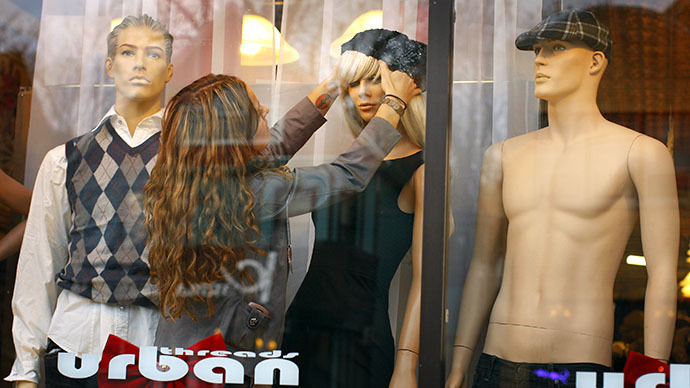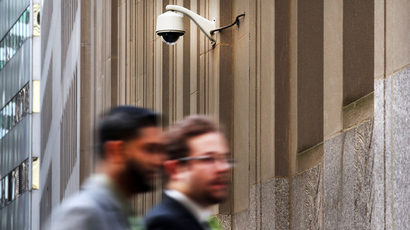Somebody’s watching me: Camera sensors to be placed in retail mannequins

A number of stores that customers flock to during the holiday season are considering adopting a new technology which uses camera sensors implanted in a store mannequin’s eyes to monitor a customer’s activity in the shop, using that data to beef up sales.
Retailers say the ubiquitous plastic dummies typically used to model clothes would be fitted with motion sensors that trigger facial recognition technology when a shopper is nearby. The cameras will then observe the shopper’s behavior, noting whether that individual picks up a product right away and heads for the register or if that person seems unsure about making the purchase.
The system, known as ‘Shopperception,’ has already been enacted at Walmart stores, and developer Alfonso Perez says more chains will likely follow suit.
“We have evolved in the way in which we want our products tailored to our liking,” Perez told CBS New York. “The brands and retailers are using this information to learn about us, to learn about what we like.”
Shopperception developers asserted that it would be silly to say the product crosses the line, citing the growing number of surveillance cameras that keep an eye on shoppers throughout stores, out into the parking lot, and at most other businesses.
“We don’t store any information about anybody,” Perez said. “We process the information real-time.”
A number of shoppers questioned by CBS said just the thought of such a technique feels like a violation, and that they would consider changing shopping habits to avoid the “invasive” and “creepy” technology.
Joel Reidenberg, a professor of technology at Princeton University who has co-written three books on international privacy law, said the way stores conduct themselves could point to their true feelings on Shopperception.
“If the retailer is unwilling to be transparent with what they’re doing, the way they’re collecting information, how they’re using that information, it says they know their customers will be upset by it,” he said.
A similar debate was held last year when an Italian mannequin maker introduced ‘EyeSee,’ a line of figures equipped with cameras in the eyes meant to catch shoplifters in the act. The developer behind EyeSee said the company only sold a small number of mannequins and they were mostly ordered by luxury stores aiming to protect expensive merchandise. Advocates said the technology is necessary because mannequins have a closer look at shoppers and tend to attract their attention, unlike the cameras floating above.
As with the motion detector cameras, the prospect of anti-stealing cameras has also raised customers’ eyebrows. Christopher Mesnooh, a partner at the law firm Field Fisher Waterhouse in Paris, told Bloomberg last year that the situation is less clear than with internet surveillance.
“If you go on Facebook, before you start the registration process, you can see exactly what information they are going to collect and what they’re going to do with it,” he said last year. “If you’re walking into a store, where’s the choice?”













